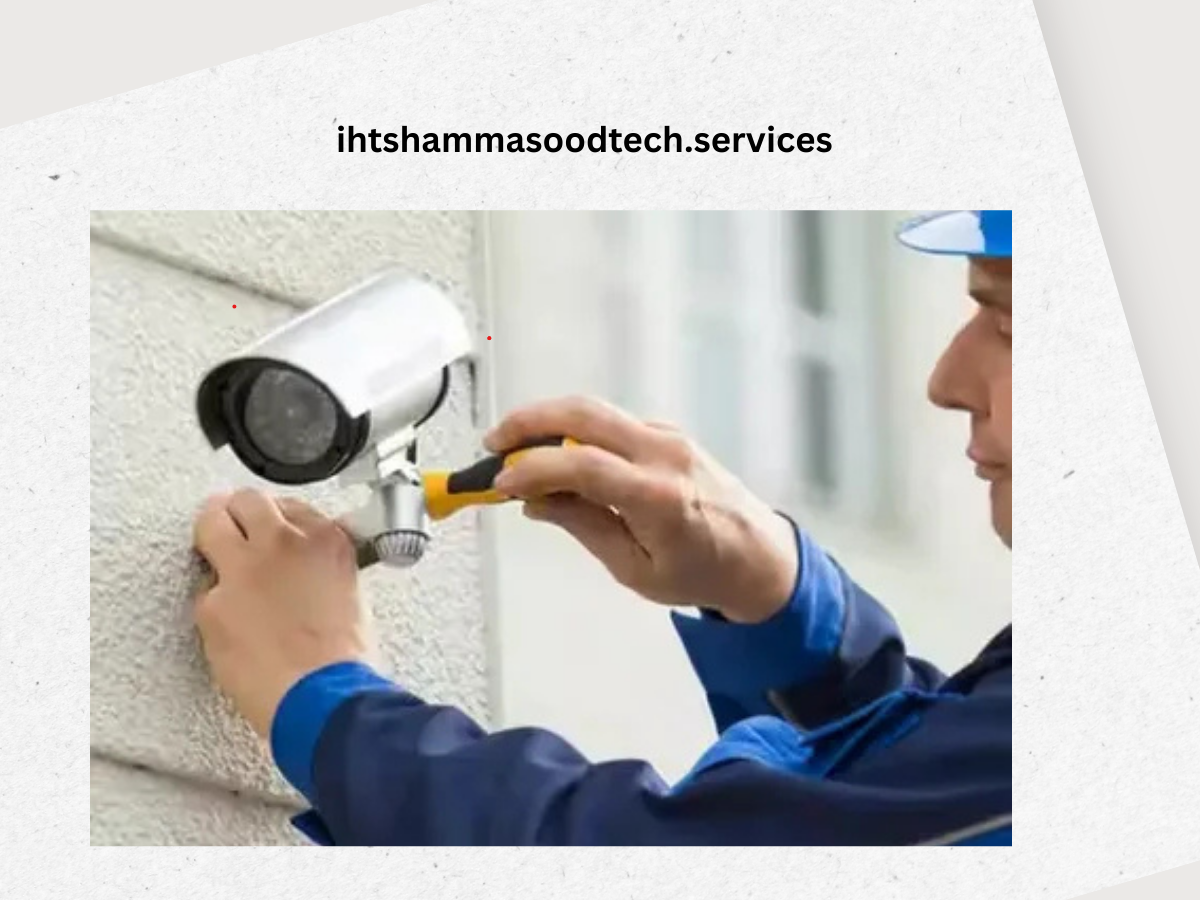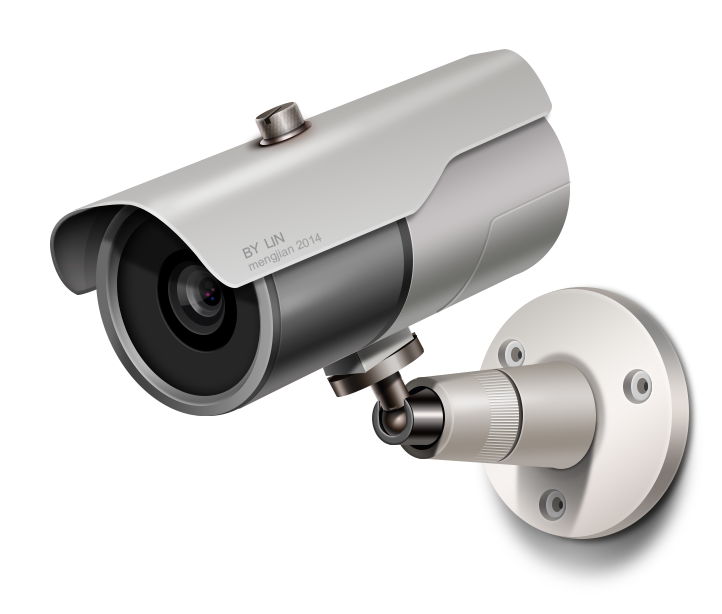In today’s world, ensuring the safety of your family, employees, and property is more important than ever. Whether it’s a private villa, a commercial office, or a retail space, having a reliable surveillance system in place can make a huge difference. One of the most effective ways to safeguard your premises is to install CCTV camera services that are professionally planned and expertly executed. This comprehensive guide will walk you through everything you need to know about installing CCTV systems—from planning and equipment selection to maintenance—so you can protect what matters most with confidence.
Why You Should Install CCTV Camera Services
When you install CCTV Camera Services for Home, you gain 24/7 surveillance coverage that deters crime, monitors daily activity, and provides recorded footage that can serve as legal evidence if needed. These systems help reduce theft, ensure staff accountability, and provide peace of mind whether you’re at home or away. For businesses, CCTV also aids in managing operations and preventing workplace incidents. A professionally installed setup ensures clear video quality, secure data storage, and reliable performance in all weather conditions. Modern systems even allow for mobile access, so you can check in from anywhere at any time.
Planning the Right Security Setup
Before you install CCTV camera services, a proper security assessment is vital. Evaluate the size of the property, number of access points, and any previous incidents or vulnerabilities. For homes, prioritize entrances, driveways, and backyard areas. For businesses, add coverage for cash registers, inventory storage, and public entry points. This planning phase helps determine the number of cameras needed, their placement, and whether you’ll use wired or wireless systems. Planning also includes deciding between analog systems or IP-based networks, both of which offer distinct benefits depending on your needs.

Choosing the Right Equipment
The effectiveness of your CCTV system depends heavily on the quality of the components you choose. When you install CCTV camera services, opt for cameras with at least 1080p resolution and night vision capabilities. Consider bullet cameras for outdoor use and dome cameras for indoor aesthetics. A robust DVR or NVR system ensures reliable recording and storage, while hard drives should offer at least 1TB capacity to store multiple days of footage. Additional accessories like UPS (for backup power), PoE switches, and surge protectors also help maintain performance and safety during power outages or network issues.
Indoor vs Outdoor CCTV Camera Considerations
The environment in which your cameras operate plays a major role in their longevity and effectiveness. When you install CCTV camera services outdoors, make sure to use weatherproof cameras with IP66 or IP67 ratings. These resist rain, dust, and extreme temperatures. Also, ensure cameras are tamper-proof and mounted high enough to avoid vandalism. For indoor setups, look for compact models that blend into the room while still offering wide-angle coverage. Positioning is key—indoor cameras should cover hallways, entry points, and main living or work areas without invading privacy zones like bathrooms or bedrooms.
Wiring and Network Setup
Whether you’re working with analog or IP cameras, proper cabling is essential. When professionals install CCTV camera services, they use high-quality cables that ensure stable connections and minimal interference. Coaxial cables with BNC connectors are standard for analog setups, while Cat5e or Cat6 Ethernet cables are used for IP systems. For wireless setups, stable Wi-Fi coverage is critical, and signal boosters may be required. The network configuration includes assigning static IP addresses, ensuring firewall compatibility, and setting up remote access. A clean wiring layout also prevents future troubleshooting problems and enhances system durability.
Camera Positioning and Mounting
Install CCTV Camera Services for Home complete coverage with minimal blind spots. When experts install CCTV camera services, they consider field of view, lighting, and angle. Outdoor cameras should face away from direct sunlight and cover wide areas like driveways and perimeters. Entry-point cameras should clearly capture faces. Indoors, cameras must avoid glare from windows or ceiling lights while still providing clear footage. Mounting is done using sturdy brackets and anchors, and for optimal results, cameras should be installed at a height of 8–10 feet to avoid tampering while maintaining clear visibility.

Integrating CCTV With Other Security Systems
To build a comprehensive safety solution, it’s a good idea to integrate your surveillance system with alarms, motion detectors, and smart locks. When you install CCTV camera services, advanced providers can link the feed to your existing smart home network. For businesses, CCTV can work in tandem with access control systems to monitor employee entry. Motion sensors can also be set to trigger cameras to start recording or send mobile alerts. This layered security strategy enhances protection and allows for real-time responses to incidents, adding an extra layer of reliability to your setup.
Mobile Monitoring and Remote Access
One of the best features of modern surveillance is the ability to access footage remotely. When you install CCTV camera services using IP systems, most setups include a companion app for mobile devices or computers. Through this app, you can live-stream video, play back past footage, and even control camera angles if using PTZ (Pan-Tilt-Zoom) cameras. Remote alerts can be triggered by motion or sound, allowing you to take immediate action even when you’re miles away. This makes it especially useful for people who travel often or manage multiple properties from one location.
Data Storage and Video Backup
Storage is a critical aspect of any CCTV system. As you install CCTV camera services, make sure to choose a recording device (DVR/NVR) with enough storage capacity for your needs. Most systems allow you to store footage for 7 to 30 days depending on resolution and motion-triggered settings. Some setups include overwrite functions where old footage is replaced automatically. For added safety, cloud storage or external drives can be configured as backups. This ensures footage is available even if the DVR/NVR is damaged or stolen during an incident.
Legal Considerations and Privacy
Installing surveillance comes with a set of responsibilities. Before you install CCTV camera services, it’s important to understand your local laws regarding video recording. In many regions, you are allowed to record public areas like entrances and driveways but not private zones like inside bathrooms or neighbors’ properties. Clear signage should be displayed to inform visitors that surveillance is in effect. If you’re recording audio, additional consent laws may apply. Compliance protects you legally and helps maintain trust among tenants, family members, or employees who may be affected by camera placement.

Maintenance After Installation
Ongoing care ensures long-term functionality. After you install CCTV camera services, create a maintenance schedule that includes monthly lens cleaning, checking for software updates, and verifying storage space. Power backups should be tested quarterly, and cables should be inspected for wear or disconnection. If your system uses Wi-Fi, monitor network health and update passwords regularly. Periodic reviews of footage clarity and motion sensitivity help keep the system performing optimally. Regular maintenance not only extends equipment life but also reduces the chances of downtime when you need your system the most.
Costs Involved in Installation
The cost to install CCTV camera services in Houces can vary depending on the number of cameras, type of equipment, and complexity of the setup. A basic home installation with 2–4 cameras might range from while a commercial-grade system could exceed. Costs include equipment, labor, and sometimes licensing software or cloud access. While DIY kits are cheaper, professional installations offer greater reliability and support. It’s also worth considering service contracts for long-term maintenance and upgrades, which can reduce repair expenses and prevent unexpected failures.

Choosing a Reliable Installation Service
Not all installers offer the same level of service. When selecting a company to install CCTV camera services, look for certified technicians, strong customer reviews, and transparent pricing. Experience matters—especially for complex sites like villas or commercial buildings. Ask whether they offer warranty coverage, emergency repair services, and remote support. A reputable service provider will conduct an initial consultation, walk you through system options, and offer custom solutions tailored to your property. Working with experts ensures the system meets your specific needs and operates at peak performance.
Benefits of Professional Installation vs DIY
Many homeowners consider DIY kits, but there’s a clear difference in performance and reliability when you install CCTV camera services professionally. Experts understand wiring, positioning, and integration with other systems. They also configure the network correctly, reducing the risk of hacking or failure. Professional installers test each component thoroughly and provide training on how to use the system. While DIY might save money initially, improper setup could leave blind spots or expose your system to security risks. Investing in a certified installer delivers better results and long-term peace of mind.
Future Upgrades and Scalability
One of the key advantages of modern systems is their flexibility. When you install CCTV camera services today, plan for future needs. Choose systems that allow you to add more cameras or integrate with smart home technologies. Look for NVRs that support extra channels and higher resolutions. As your family grows or business expands, your system should grow with you. Smart planning at the installation stage saves you from having to start over later and ensures that your investment remains relevant and effective over time.
Conclusion
A well-designed CCTV system is a powerful tool in securing your home or business. When you install CCTV camera services, you’re not just putting up cameras—you’re creating a reliable, round-the-clock security framework that keeps your property safe and gives you peace of mind. From planning and installation to maintenance and future upgrades, every step plays a role in the system’s effectiveness. Trust professional installers, invest in quality equipment, and stay informed to get the most out of your surveillance setup.



